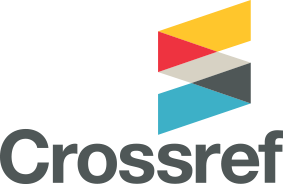Effectiveness of WHO Stress Management for Improving Insomnia Severity Index Score in Telegram’s Self-Isolated Online Group Population
Abstract
Insomnia is one of the various symptoms frequently found in patients with post-covid syndrome (PCS) (19.1%). The WHO Stress Management (WSM) is an eclectic psychotherapy that combines mindfulness and relaxation which, theoretically, can be effective in treating insomnia due to PCS. This study aimed to explore the effectiveness of WSM in improving the Insomnia Severity Index Score for people with PCS. This was a quasi-experimental pre-test-post-test control study on 18 participants in the population of online self-isolation group in the Telegram who experienced insomnia. The intervention applied was WSM. These participants were compared to 18 controls who only received psychoeducation. Clinical insomnia symptoms were examined using the Insomnia Severity Index (ISI) before the intervention, then the control group was given sleep hygiene psychoeducation, and the treatment group was given WSM in 5 Zoom on-cam meetings once a week for 30-60 minutes. A re-assessment using the ISI post-test was then performed, and data were analyzed statistically. There was a change in score for insomnia symptoms in the treatment group (delta score 27.50) compared to the control group (delta score 9.50, p=0.00; OR 0.00, p=0,99, 95% CI). Thus, WSM can improve the insomnia score in the population with PCS.
Keywords
Full Text:
PDFReferences
- Kamal M, Abo Omirah M, Hussein A, Saeed H. Assessment and characterisation of post-COVID-19 manifestations. Int J Clin Pract. 2021;75(3):1–2.
- El Sayed S, Shokry D, Gomaa SM. Post-COVID-19 fatigue and anhedonia: A cross-sectional study and their correlation to post-recovery period. Neuropsychopharmacol Reports. 2021;41(1):50–5.
- Lin L yu, Wang J, Ou-yang X yong, Miao Q, Chen R, Liang F xia, et al. The immediate impact of the 2019 novel coronavirus (COVID-19) outbreak on subjective sleep status. Sleep Med. 2021;77:348-34.
- Kokou-Kpoloua CK, Megalakakia O, Laimoua D, Kousourib M. Insomnia during COVID-19 pandemic and lockdown: Prevalence, severity, and associated risk factors in French population. Psychiatry Res. 2020;290:113128.
- Tizenberg BN, Brenner LA, Lowry CA, Okusaga OO, Benavides DR, Hoisington AJ, et al. Biological and psychological factors determining neuropsychiatric outcomes in COVID-19. Curr Psychiatry Rep. 2021;23(10):1–25.
- Wang LA, Kloet AD de, Smeltzer MD, Cahill KM, Hiller H, Bruce EB, et al. Coupling corticotropin-releasing-hormone and angiotensin converting enzyme 2 dampens stress responsiveness in male mice. Physiol Behav. 2019;176(3):139–48.
- Ortelli P, Ferrazzoli D, Sebastianelli L, Engl M, Romanello R, Nardone R, et al. Neuropsychological and neurophysiological correlates of fatigue in post-acute patients with neurological manifestations of covid-19: insights into a challenging symptom. J Neurol Sci. 2021;420:117271.
- Anderson G, Reiter RJ. Melatonin: Roles in influenza, Covid-19, and other viral infections. Rev Med Virol. 2020;30(3):1–10.
- Kempuraj D, Selvakumar GP, Ahmed ME, Raikwar SP, Thangavel R, Khan A, et al. COVID-19, mast cells, cytokine storm, psychological stress, and neuroinflammation. Neuroscientist. 2020;26(5–6):402–14.
- Shimba A, Ikuta K. Glucocorticoids regulate circadian rhythm of innate and adaptive immunity. Front Immunol. 2020;11:2143.
- Edinger JD, Arnedt T, Bertisch SM, Carney CE, Harrington JJ, Lichstein KL, et al. Behavioral and psychological treatments for chronic insomnia disorder in adults: an American Academy of Sleep Medicine systematic review, meta-analysis and GRADE assessment. J Clin Sleep Med. 2021;17(2):263-98.
- Jaiswal S, Muggleton NG, Juan CH, Liang WK. Indices of association between anxiety and mindfulness: A guide for future mindfulness studies. Personal Neurosci. 2019;2.
- Needham BL, Mezuk B, Bareis N, Lin J, Blackburn EH, Epel ES. Depression, anxiety and telomere length in young adults: Evidence from the National Health and Nutrition Examination Survey. Mol Psychiatry [Internet]. 2015;20(4):520–8.
- Bektas A, Schurman SH, Franceschi C, Ferrucci L. A public health perspective of aging: Do hyper-inflammatory syndromes such as COVID-19, SARS, ARDS, cytokine storm syndrome, and post-ICU syndrome accelerate short- And long-term inflammaging?. Immun Ageing. 2020;17(1):1–10.
- Liu K, Chen Y, Wu D, Lin R, Wang Z, Pan L. Effects of progressive muscle relaxation on anxiety and sleep quality in patients with COVID-19. Complement Ther Clin Pract. 2020;39:101132.
- Chung KF, Lee CT, Yeung WF, Chan MS, Chung EWY, Lin WL. Sleep hygiene education as a treatment of insomnia: A systematic review and meta-analysis. Fam Pract. 2018;35(4):365–75.
- Pappa S, Ntella V, Giannakas T, Giannakoulis VG, Papoutsi E, Katsaounou P. Prevalence of depression, anxiety, and insomnia among healthcare workers during the COVID-19 pandemic: A systematic review and meta-analysis. [published correction appears in Brain Behav Immun. 2021 Feb;92:247]. Brain Behav Immun. 2020;88:901-907
- Clark I, Landolt HP. Coffee, caffeine, and sleep: A systematic review of epidemiological studies and randomized controlled trials. Sleep Med Rev. 2017;31:70–8.
- Koob GF, Colrain IM. Alcohol use disorder and sleep disturbances: a feed-forward allostatic framework. Neuropsychopharmacology. 2020;45(1):141–65.
- Rogers JP, Chesney E, Oliver D, Pollak TA, McGuire P, Fusar-Poli P, et al. Psychiatric and neuropsychiatric presentations associated with severe coronavirus infections: a systematic review and meta-analysis with comparison to the COVID-19 pandemic. The Lancet Psychiatry. 2020;7(7):611–27.
- Lally RM, Kupzyk K, Mills A, Gallo S, Meneses K. Effects of social constraints and web-based psychoeducation on cancer-related psychological adjustment early-after breast cancer diagnosis. J Psychosoc Oncol. 2019;37(6):677–98.
DOI: https://doi.org/10.15395/mkb.v55n2.2753
Article Metrics
Abstract view : 906 timesPDF - 493 times

This work is licensed under a Creative Commons Attribution-NonCommercial 4.0 International License.

MKB is licensed under a Creative Commons Attribution-NonCommercial 4.0 International License
View My Stats






